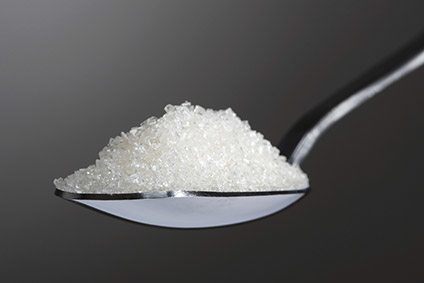
A tax of up to 20% on "high-sugar" products, cutting the number of promotions and introducing more restrictions on advertising are among the measures Public Health England believes are needed to help lower the amount of the ingredient eaten in the country.
The executive agency's long-awaited report said England's sugar intake is too high and has become "too serious a problem" to be solved by consumers changing their behaviour or getting more information on the food they eat.

Discover B2B Marketing That Performs
Combine business intelligence and editorial excellence to reach engaged professionals across 36 leading media platforms.
However, a spokesperson for David Cameron has said the UK Prime Minister does not support calls from some campaigners for the introduction of a sugar tax, a stance immediately criticised by campaigners.
Public Health England's report said a tax of 10-20% should be levied on products high in sugar, pointing to the "emerging evidence" of how similar measures have affected sugar consumption in other countries.
It said research showed increasing the price of high-sugar products through taxes or other means is "likely to reduce purchases of these products at least in the short term".
"Data on the effectiveness of these measures, while not always robustly evaluated, suggests that reductions in sales have been seen as a result of the imposition of taxes in Norway, Finland, Hungary, France and Mexico," the report read.

US Tariffs are shifting - will you react or anticipate?
Don’t let policy changes catch you off guard. Stay proactive with real-time data and expert analysis.
By GlobalDataOn promotions, the agency said the level of offers in the UK were "the highest in Europe" and claimed products high in sugar were "promoted more than other foods". The discounts increase the amount of the ingredient consumed from high-sugar foods and drinks by 6%, the report noted. It called for a reduction in the number of offers and a "rebalancing" in the types of discounts across the retail and foodservice channels.
On advertising, Public Health England called for a "significant" reduction in opportunities across all media to market high-sugar products. The report said the Ofcom nutrient profiling model – established to stop the advertising of products with the highest levels of sugar, fat and salt – should be tightened. It also said restrictions on advertising around children's television should be extended to include all programmes they are likely to watch. The agency also argued curbs on advertising should be widened to take in all other forms of broadcast media, social media and advertising.
The report suggested five other actions: setting a "clear definition" for high-sugar foods beyond the Ofcom nutrient profiling model; introducing a programme to gradually reduce sugar in "everyday" food and drink products; work on the sale of healthier products across the whole public sector; accredited training in diet and health to staff in the catering, fitness and leisure sectors, as well as others in local authorities who can influence food choices; and providing practical steps to help consumers lower their sugar intake.
"No single action will be effective in reducing sugar intakes. This is too serious a problem to be solved by approaches that rely only on individuals changing their behaviour in response to health education and marketing, or the better provision of information on our food. The environmental drivers of poor diets we face are just too big. Implementing a broad, structured programme of parallel measures to reduce the impact of influences that increase consumption, reduce the sugar content of food and drinks, and support people in making healthier choices through information and education, would be likely to achieve meaningful reductions in sugar intakes across the population," the report read.
Ian Wright, director general of the Food and Drink Federation, the organisation representing food manufacturers in the UK, said: "We welcome the publication today of PHE's report since all policy-making should be evidence based. The food and drink industry is determined to play its part in tackling childhood obesity. Steps are already in hand to ensure that high fat, salt and sugar foods will not be advertised to children. Likewise, the industry has already removed millions of calories from the food chain and will continue to make progress on this through reformulation and changes to portion/pack sizes.
"It may also be possible, by negotiation, to improve the definition of high-sugar foods as the report suggests. However, we do not agree that the international evidence supports the introduction of a sugar tax and for this reason would oppose such a move."
The Children's Food Campaign said the UK government should implement all of the agency's recommendations. "The economic and human costs of continuing softly-softly approaches and further inaction are well set out by PHE in their report. The Government's childhood obesity strategy needs to take PHE’s eight action areas and run with them all immediately – including introducing a GBP0.20 per litre duty on sugary drinks, bringing in a 9pm watershed for junk food ads on TV and ensuring that there are strong marketing rules across all forms of media. Although not part of PHE's review remit, universal infant free school meals and additional support for food and nutrition education in schools should also be core parts of the Government's agenda," Malcolm Clark, co-ordinator of The Children's Food Campaign, said.





